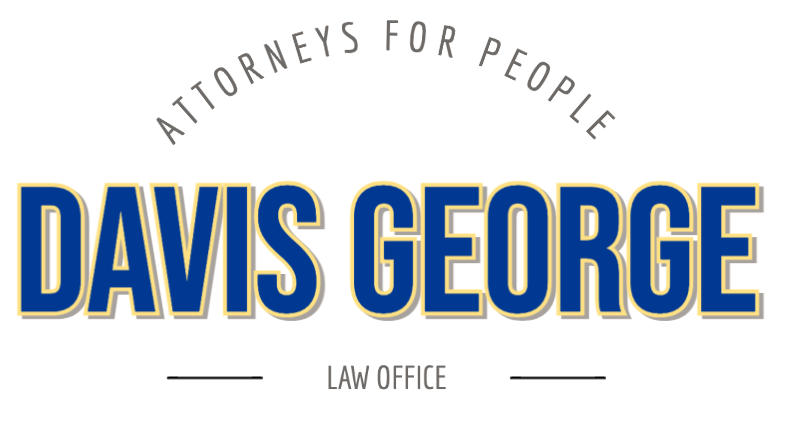Wage & Hour Litigation
DID YOU KNOW....?

Minimum wage rate in Missouri is currently $12.00 per hour. This is higher than the federal minimum wage rate of $7.25 per hour. All Missouri businesses are required to pay at minimum, the $12.00 per hour rate, except retail and service businesses whose annual gross sales are less than $500,000. There are only a few classes of employees to whom Missouri’s law does not apply.
In addition, overtime compensation must also be paid at a rate not less than one and one-half times a covered employee’s regular rate for all hours worked over 40 in a workweek.
A Missouri employee may bring any legal action necessary to collect wages owed. A Missouri employer who pays an employee wages less than what is due under the law shall be liable for the full amount of the wage rate plus an additional equal amount as liquidated damages (e.g. “double damages”), less any amount actually paid, and for costs and such reasonable attorney fees as may be allowed by the court or jury (see Section 290.527, RSMo).
Employers cannot simply pay you a “salary” to avoid paying time-and-a-half overtime for hours worked beyond 40 in a workweek. You are still entitled to overtime unless you fall under the limited exemptions set forth in state and federal statutes. Call Davis George LLC to find out whether you are owed overtime wages. (816)569-2629.
Federal and Missouri law do not require employers to provide employees a break of any kind, including a lunch hour. However, if an employer deducts a meal break from your pay, you must be fully relieved of any work duties during the entire break. If your employer requires or allows you to perform work during your meal break, but still deducts the time from your pay, you may be owed unpaid wages. And, an employer cannot dock your pay for short rest breaks (e.g. 15-minute breaks).
OFF-THE-CLOCK WORK
Employers often limit payroll budgets to increase their profits. To achieve this goal, these employers will require or allow employees to perform “off-the-clock” work without pay, even threatening employees with discipline for reporting their overtime work. This unlawful conduct deprives employees of their legally-owed wages, including overtime pay.
The Fair Labor Standards Act (“FLSA”) defines the term “employ” to include the words “suffer or permit to work.” Suffer or permit to work means that if an employer requires or allows employees to work, the time spent is generally hours worked.
Thus, time spent doing work not requested by the employer, but still allowed, is generally hours worked, since the employer knows or has reason to believe that the employees are continuing to work and the employer is benefiting from the work being done. This time is commonly referred to as “working off the clock.” Not surprisingly, many employers look the other way and reap the benefit of this off-the-clock work without paying for it. This is unlawful.
Some of the most common ways employers violate State and Federal laws prohibiting off-the-clock work include:
- Requiring employees to attend pre-shift meetings without pay;
- Requiring employees to start up computers or other equipment before the start of their shift without pay;
- Automatically deducting a meal break whether or not that meal break is interrupted with work or never received at all;
- Requiring or permitting employees to check or respond to voicemails and emails before the start of, or after the end of, their shifts;
- Requiring employees to clock out for rest breaks;
- Rounding off time at the time clock to the detriment of the employee;
- Requiring employees to change in and out of uniforms at work (“donning and doffing”) while off the clock;
- Failing to pay for mandatory training sessions.
MISCLASSIFICATION
Many employers will pay a salary or flat rate for all hours worked, hoping they can avoid paying overtime for an employee’s long hours. This is unlawful unless the employee’s job duties fit squarely within a limited exemption under the law.
Exemptions are determined based on each specific employment situation. Job titles alone do not determine the exempt or non-exempt status of any employee. Call the attorneys at Davis George at 816-569-2629 to determine whether you have been misclassified and are entitled to overtime.
To fall within the most common exemptions, an employee generally must be paid on a salary basis of no less than $684 per week and perform a certain type of work that:
- is directly related to the management of his or her employer’s business
- is directly related to the general business operations of his or her employer or the employer’s clients
- requires specialized academic training for entry into a professional field
- is in the computer field
- is making sales away from his or her employer’s place of business
- is in a recognized field of artistic or creative endeavor
BONUSES & INCENTIVE PAY
The FLSA requires employers to calculate overtime based on an employee’s regular rate of pay. An employee’s “regular rate of pay” is an hourly rate that includes all compensation paid to the employee during the workweek, with certain exceptions. Among these exceptions is the payment of a discretionary bonus.
Non-discretionary bonuses, on the other hand, must be included in an employee’s regular rate of pay when computing overtime. Whether a bonus is non-discretionary (or discretionary) depends on the circumstances relating to the bonus; but when an employer regularly offers a bonus that an employee has come to expect, or where the bonus is in any way promised to an employee such as by announcing it earlier in the year, the bonus will be considered non-discretionary. Examples of non-discretionary bonuses include attendance bonuses, production bonuses, and bonuses for quality of work.
If you received a bonus payment or incentive pay, and this payment was not included in your overtime rate, call the attorneys at Davis George at 816-569-2629 to determine whether you are owed additional overtime wages.
